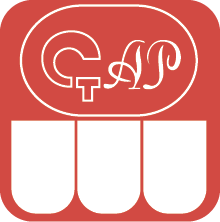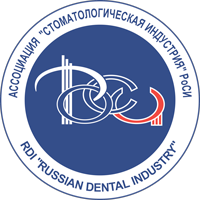DOI:
10.37988/1811-153X_2021_4_36Antidepressants efficacy in glossodynia comprehensive treatment
Downloads
Abstract
We evaluated the efficacy of comprehensive treatment of glossodynia with different antidepressants on the basis of psychoemotional state indicators of patients and analysis of side effects of the drugs. Materials andMethods.
Patients aged 40 to 68 years (n=45) with diagnosed glossodynia were divided into 3 groups of 15 people depending on which antidepressant was used in the treatment regimen. Group I received amitriptyline (25 mg), Group II received Duloxetine (60 mg), and group III received Sertraline (100 mg). Pain level was assessed with the help of visual analog scale. Psychoemotional state was determined using a personality anxiety scale. Patients were questioned about side effects of the prescribed antidepressants. Results were compared before treatment and at the end of the course in 1 month.
Results.
Pain and anxiety levels in all groups after treatment were statistically significantly different from pre-treatment levels (p<0.001). Thus, group I patients showed 60.3 and 35.1% reduction of anxiety and pain levels respectively, in group II — 61.6 and 37.2%, in group III — 62.1 and 42.7%. The number of side effects in group I was almost twice as high as in groups II (less frequent) and III (almost always), but the differences were statistically insignificant.
Conclusion.
The use of various groups of antidepressants in the treatment of glossodynia is effective, contributes to the correction of patients' psychoemotional state due to the decrease of pain and anxiety. However, it is preferable to prescribe medications of the latest generation due to a lower number of side effects.
Key words:
glossalgia, scalded mouth syndrome, glossodynia, burning tongue syndrome, antidepressantsFor Citation
[1]
Makarova E.A., Shumsky A.V. Antidepressants efficacy in glossodynia comprehensive treatment. Clinical Dentistry (Russia). 2021; 24 (4): 36—41. DOI: 10.37988/1811-153X_2021_4_36
References
- Saperkin N.V., Tiunova N.V., Sergeeva A.V. Clinical and epidemiological characteristics of the «Flaming Mouth» syndrome at the regional level. Medical almanac. 2017; 4 (49): 142—144 (In Russ.). eLIBRARY ID: 30114701
- Iordanishvili A.K., Libih D.A., Ryzhak G.A. Stomalgy in elderly and senile: diagnosis, classification and evaluation of treatment. The Dental Institute. 2013; 2 (59): 50—3 (In Russ.). eLIBRARY ID: 22134642
- Sun A., Wu K.M., Wang Y.P., Lin H.P., Chen H.M., Chiang C.P. Burning mouth syndrome: a review and update. J Oral Pathol Med. 2013; 42 (9): 649—55. PMID: 23772971
- Charleston L. 4th Burning mouth syndrome: a review of recent literature. Curr Pain Headache Rep. 2013; 17 (6): 336. PMID: 23645183
- Hens M.J., Alonso-Ferreira V., Villaverde-Hueso A., Abaitua I., Posada de la Paz M. Cost-effectiveness analysis of burning mouth syndrome therapy. Community Dent Oral Epidemiol. 2012; 40 (2): 185—92. PMID: 22044166
- Borisova E.G., Nikitenko V.V., Khlebnikov D.A. Methods of differential diagnosis of galvanosis and glossodynia in outpatient settings. Health and Education Millennium. 2016; 18 (4): 29—31 (In Russ.). eLIBRARY ID: 26454183
- Yavorskaya E.S. Pain and paresthetic syndromes of the maxillofacial region. Handbook. Kiev: MedBook, 2007. 56 p. (In Russ.).
- Karakov K.G., Khachaturian E.E., Vlasova T.N., Ogonyan A.V., Khachaturian A.E., Kharina P.A., Ertuvkhanov M.Z. Evaluation of the effectiveness of the use of a new generation homeopathic drug in the treatment of glossalgia. Actual Problems in Dentistry. 2018; 14 (2): 30—4 (In Russ.). eLIBRARY ID: 35295781
- Zhulev E.N., Tiunova N.V., Lukinykh L.M. Correction of the psychoemotional state of patients with stomalgia. Kuban Scientific Medical Bulletin. 2015; 3 (152): 55—57 (In Russ.). eLIBRARY ID: 23942235
- Skuridin P.I., Golubev M.V. Psychopharmacotherapy and psychotherapy for burning mouth syndrome. Clinical neurology. 2017; 4: 21—4 (In Russ.). eLIBRARY ID: 32470452
- de Souza F.T., Teixeira A.L., Amaral T.M., dos Santos T.P., Abreu M.H., Silva T.A., Kummer A. Psychiatric disorders in burning mouth syndrome. J Psychosom Res. 2012; 72 (2): 142—6. PMID: 22281456
- Kukushkin M.L., Khitrov N.K. General pathology of pain. Moscow: Medicine, 2004. Pp. 113—128 (In Russ.). eLIBRARY ID: 21141639
- Chernaya N.A., Poplavskaya O.V. Pain as a syndrome of mental distress. Russian Journal of Pain. 2020; 18 (S): 125—6 (In Russ.). eLIBRARY ID: 43971624
- Mattia C., Paoletti F., Coluzzi F., Boanelli A. New antidepressants in the treatment of neuropathic pain. A review. Minerva Anestesiol. 2002; 68 (3): 105—14. PMID: 11981519
- Becker R.A., Bykov Yu.V. Depressive patients in dental practice: dental complications of depression and its treatment. Mental disorders in general medicine. 2016; (1—2): 45—52 (In Russ.). eLIBRARY ID: 26427543
- Vasenev E.E., Alekhanova I.F., Popova A.N., Krainov S.V. Effectiveness of medical treatment of patients with stomalgia. Actual Problems in Dentistry. 2018; 14 (3): 5—10 (In Russ.). eLIBRARY ID: 36458684
- Smulevich A.B. Depression in somatic and mental diseases. Moscow: Medical Informational Agency, 2015. Pp. 211—300 (In Russ.). eLIBRARY ID: 19521905
- Beghi E., Bussone G., D.’Amico D., Cortelli P., Cevoli S., Manzoni G.C., Torelli P., Tonini M.C., Allais G., De Simone R., D.’Onofrio F., Genco S., Moschiano F., Beghi M., Salvi S. Headache, anxiety and depressive disorders: the HADAS study. J Headache Pain. 2010; 11 (2): 141—50. PMID: 20108021
- Kamchatnov P.R., Radysh B.B., Kutenev A.V., Kazakov A.Yu. The use of the antidepressant venlafaxine in patients with chronic pain syndrome. Russian Medical Journal. 2009; 17 (20): 1382—5 (In Russ.). eLIBRARY ID: 17957433
- Nikolaenko E.V. Psychocorrection in the complex treatment of patients with burning mouth syndrome: master’s thesis. Moscow, 2009. 98 p. (In Russ.).
- Cuijpers P., Beekman A.T., Reynolds C.F. 3rd Preventing depression: a global priority. JAMA. 2012; 307 (10): 1033—4. PMID: 22416097
- Tomlinson A., Boaden K., Cipriani A. Withdrawal, dependence and adverse events of antidepressants: lessons from patients and data. Evid Based Ment Health. 2019; 22 (4): 137—138. PMID: 31645408
- Mazo G.E., Neznanov N.G. Depressive disorder. Moscow: GEOTAR-Media, 2018. Pp. 61—65 (In Russ.).
- Popov V.V., Trokhova M.V., Novikova I.A. Depressive disorders in general medical practice: textbook. Saint-Petersburg: SpetsLit, 2017. Pp. 79—104 (In Russ.).
- Kim Y.D., Lee J.H., Shim J.H. Duloxetine in the treatment of burning mouth syndrome refractory to conventional treatment: A case report. J Int Med Res. 2014; 42 (3): 879—83. PMID: 24743872
- Raskin J., Smith T.R., Wong K., Pritchett Y.L., D.’Souza D.N., Iyengar S., Wernicke J.F. Duloxetine versus routine care in the long-term management of diabetic peripheral neuropathic pain. J Palliat Med. 2006; 9 (1): 29—40. PMID: 16430342
- Tiunova N.V. Psychopharmacotherapy in the complex treatment of glossalgia and stomalgia. In: Proceedings of the “Information technologies in medicine and pharmacology” conference. Rostov-on-Don: Innovation Center for the Development in Education and Science, 2015. Pp. 62—63 (In Russ.). eLIBRARY ID: 23912371
- Pokupec J.S., Gruden Z., Gruden V. The impact of psychological testing on the patients suffering from stomatopyrosis. Coll Antropol. 2011; 35 (4): 1167—76. PMID: 22397255
Downloads
Received
June 18, 2021
Accepted
November 28, 2021
Published on
December 1, 2021









